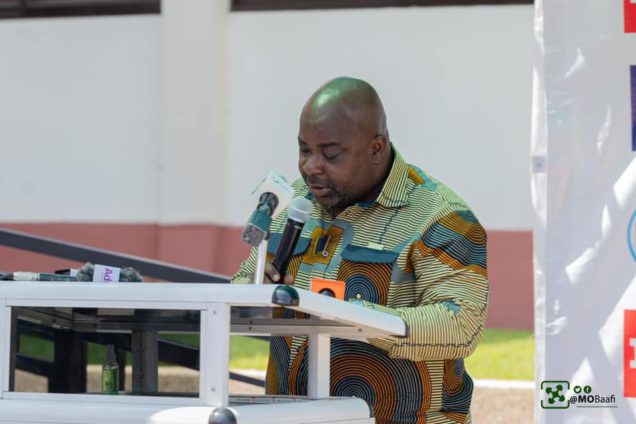The Deputy Trade and Industry Minister, Micheal Okyere Baafi, has revealed that government’s flagship programme, One District, One Factory (1D1F), has so far created over 150,000 jobs across the country.
The initiative, a key component of the Industrial Transformation Agenda of the Akufo-Addo-led government was first introduced by the Ministry of Trade, Industry and Presidential Special Initiatives during the Kufuor administration, as part of an integrated programme for Accelerated Growth and Industrial Development.
Originally designated as the Rural Enterprises Development Programme and later rebranded as the District Industrialisation Programme (DIP), it was designed as a comprehensive programme for rural industrialisation and involved the setting up at least one medium to large scale factory in each of the 216 administrative districts of Ghana.
The programme seeks to address the challenge of severe poverty and underdevelopment among rural communities by establishing an institutional framework that will attract private sector investments in rural development activities.
The initiative aims to achieve this through a massive private sector-led nationwide industrialisation drive, which will equip and empower communities to utilise their local resources to manufacture products in high demand both locally and internationally.
This will allow the country to reap the rewards of industrialisation, increase agricultural and manufacturing output, reduce reliance on imports and increase food availability.
Providing updates on the operationalisation of the 1D1F policy, Mr Okyere Baafi said indirect and direct jobs over 150,000 have been created since the programme was initiated.
"There has been a lot of achievements in this area. In the area of job creation, one cannot look down on it because a lot of Ghanaians have been employed under this policy.
This is a private sector initiative that government only facilitates, so we don't initiate them but rather facilitate. Through the arrangement, 153,782 people have benefited from this 1D1F through employment," he said.
Giving a breakdown of the jobs, he noted that "the direct employment has so far created 23,505 jobs, with indirect jobs being 130,277."
Explaining further, he said the policy "is very phenomenal, and everybody can attest to the fact that the 1D1F has brought some change, some difference in the industrial sector of the economy because it is also creating a lot of improvements in the local economies of the urban and peri-urban areas where these initiatives have caused accelerated growth and transformation to lots of lives."
Latest Stories
-
Ghana Fact-checking Coalition condemns disinformation on voting by Wontumi FM broadcaster
19 seconds -
IFRS 17 will augment and accelerate NIC’s efforts to implement risk-based capital – Deloitte
3 mins -
IFRS 17 is one of biggest changes to financial reporting standards in insurance industry – Deloitte
16 mins -
Enimil Ashon: Whose polls do you believe: ‘Global Info or Prof Sarpong?
19 mins -
Ghana Climate Innovation Centre welcomes 25 businesses into Cohort 10
24 mins -
ADB will continue to enhance customer value and service experience – Managing Director
26 mins -
Colour Cure Exhibition highlights art’s role in healing and advocacy
27 mins -
GPL 2024/25: Aduana FC sack coach Yaw Acheampong after poor run
30 mins -
John Dumelo pays ¢10,400 in outstanding fees for visually impaired law student facing deferral
32 mins -
CHRAJ clears Rev. Kusi Boateng of conflict of interest, says he doesn’t own 2 passports with different names
35 mins -
We’ll restore hope by cutting down taxes and avoiding unreasonable borrowing – Ato Forson
39 mins -
14th Edition of Tech in Ghana Conference launched in Accra
40 mins -
Manifesto clash: NPP, NDC spar over water, hygiene, sanitation and climate change
47 mins -
Ellembelle MP constructs new health facility at Santaso to serve several communities
51 mins -
Kwasi Appiah wanted to axe Ayew brothers and Wakaso from Black Stars – Ernest Thompson reveals
58 mins

